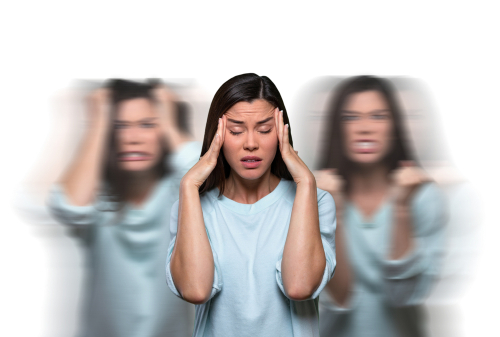
Mental Health During Pregnancy
Life changes like getting married, getting a new house and getting pregnant are exciting and yet are often overlook as it is also stressful and overwhelming. Pregnancy is a life changing event that comes with a lot of changes, physically and emotionally. The excitement of new life growing within and the worries that accompanies the pregnancy even though normal can be stressful for some. And when the pregnant mom is living with a mental health illness already their condition can worsen.
Living with a mental illness regardless of severity can impact the journey of pregnancy. From the moment of the discovery of the pregnancy, the way you view the world changes. From the foods you eat to the activities you engage in change to adjust with the pregnancy. Another important factor to consider is that the medication you take might also change.
Let’s break it down into several parts here:

The diagram above shows normal changes during pregnancy. Any previous conditions can lead to complications during pregnancy. Experiencing anxiety during pregnancy is normal because this helps us to be more alert about our health and the health of the baby. This is part of survival instincts. When anxiety, depression and any mental health issues, start having a negative impact on our health and functioning, that is when it is concerning. Studies suggest that approximately 20% of women would suffer from mood or anxiety disorders during pregnancy.
Similarly, women with other mental health history are most vulnerable during pregnancy when they discontinue their medications. Some medications may even need to be changed for the safety of the unborn baby. It is very important for pregnant mom to treat any mental health concerns they have. Some of the other mental health conditions that pregnant women can struggle with are:
- OCD (Obsessive Compulsive Disorder)
- Eating Disorder (such as bulimia and anorexia)
- Panic Attacks (Intense and sudden feeling of paralyzing fear which cannot be explained)
- PTSD (Post Traumatic Stress Disorder)
- Bipolar Disorder (episodes of mania (excessive energy) and depression (low energy))
It is important to seek help earlier on to improve well-being. The best treatment depends on your illness and its severity. Below are some treatment options and healthcare professionals you can approach.
Medications – Some medications need to be weaned so it is essential that you discontinue any medications under the supervision of a doctor. You can also approach your family doctor with your mental health concerns, to talk about medication options.
Therapy – You can also choose to do a combination of therapy, also known as talk therapy and medications. Talking with a therapist can alleviate symptoms and also to learn ways to cope with your challenges such as CBT.
Support group – Joining a support group for pregnant women with mental health concerns, may also be beneficial to help you gain additional support. The group will be able to relate and walk with you through this journey.
Alternative therapies – We know that exercise is really good for us so it is no exception here. Many find practices such as yoga and meditation can be calming and also helps manage stress. Cultural practices can also be considered to improve overall well-being.
Remember that help is available and that you do not have to do it by yourself. Getting help in a timely manner will improve both baby’s and your health.
References
Psychiatric Disorders During Pregnancy https://womensmentalhealth.org/specialty-clinics/psychiatric-disorders-during-pregnancy/
Taking Care of Your Mental Health During Pregnancy: https://kidshealth.org/en/parents/pregnant-mental-health.html
Written in partnership with![]()
